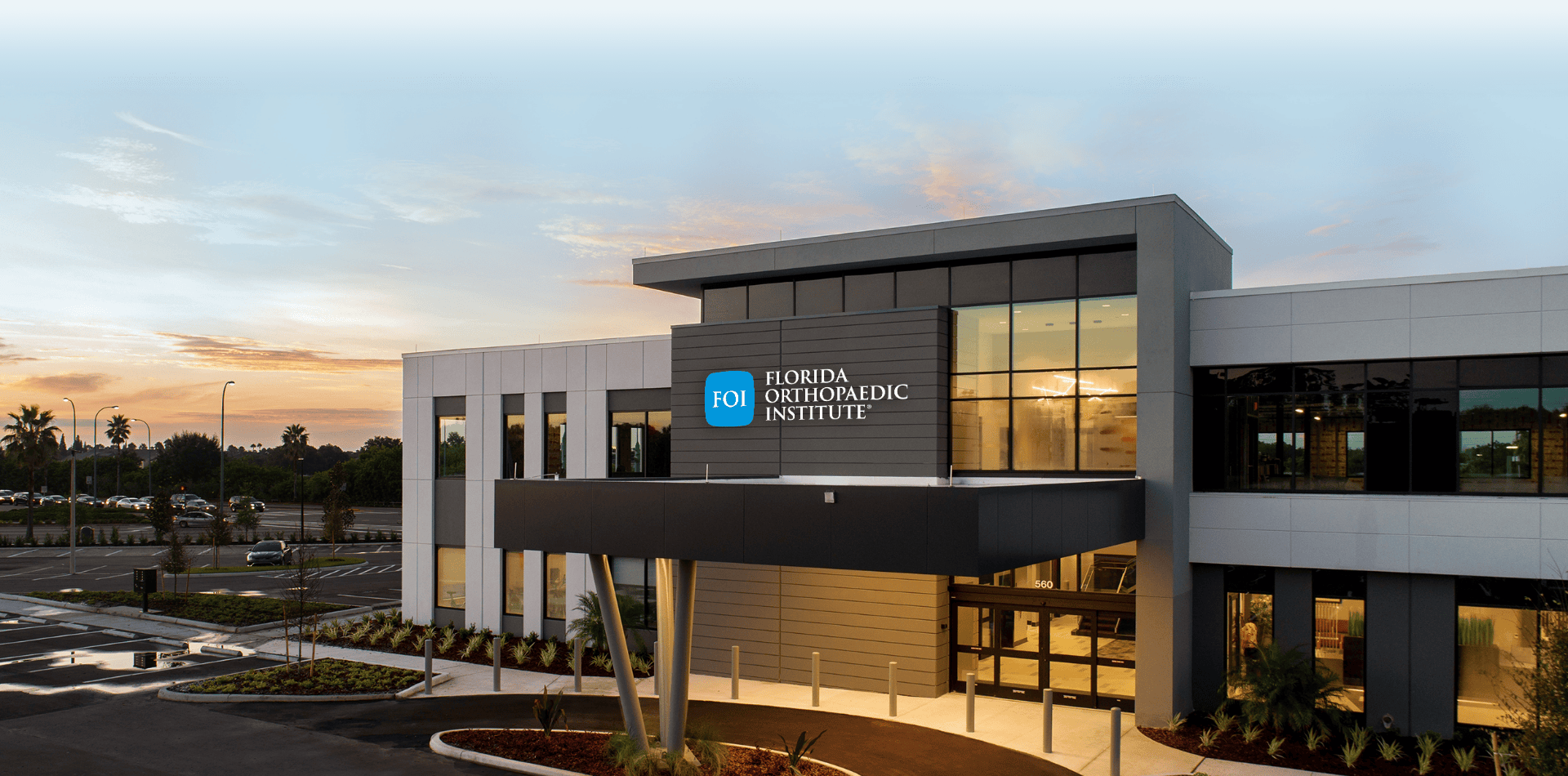World-class orthopedic experts
Our physicians are recognized internationally for their expertise in orthopedic surgery and have been named amongst the best orthopedic surgeons in the U.S. Our mission is to provide our patients with world-class orthopedic care, achieving exceptional outcomes through continuing research and specialty expertise.
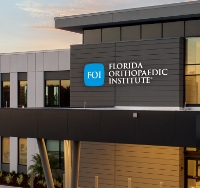

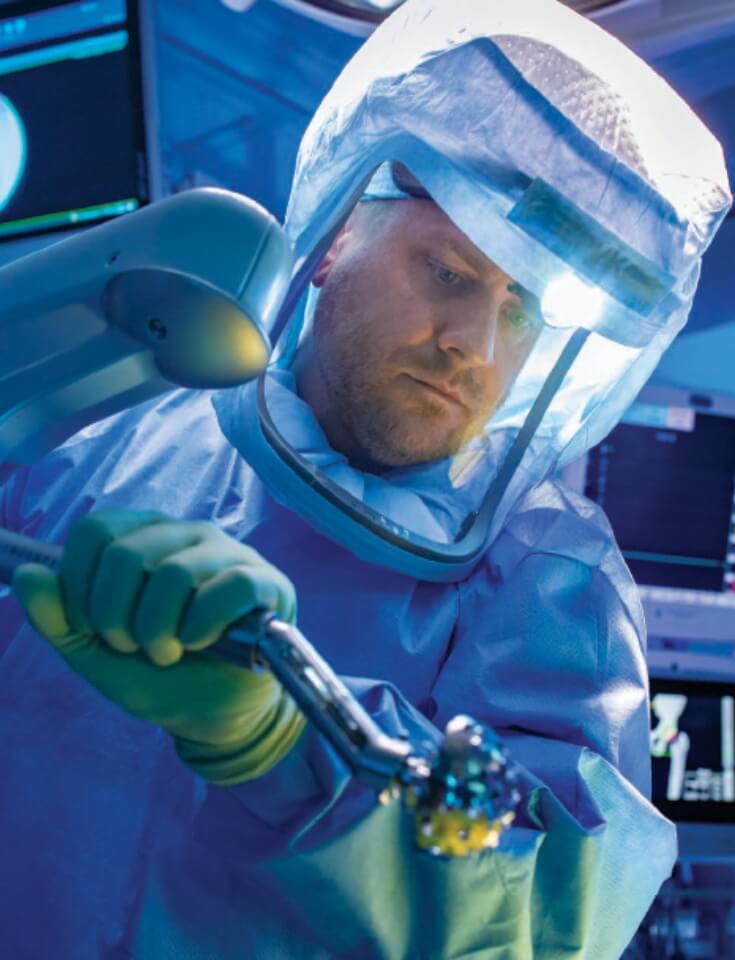
Care you can count on
We are Florida’s leader in exceptional orthopedic care. You’ll receive innovative, personalized treatment options across every specialty and subspecialty in musculoskeletal care at Florida Orthopaedic Institute.
Every patient deserves access to the best specialists in their field. Our care teams are highly sub-specialized and are constantly expanding their knowledge and skills to provide the highest quality of orthopedic care.
Our commitment to education using the latest data and research and sharing that knowledge is an essential aspect of developing cutting-edge, consistently effective orthopedic solutions.
The highest-quality care is based on the utilization of clinical best practices. This includes excellent access to every orthopedic subspecialty, medical innovation, and type of care—from physical therapy to surgery—all in one place.
Every person seeking orthopedic care deserves results-focused treatment. Our responsibility is to listen and aid in providing that relief through individualized patient-centric care plans that utilize conservative treatment before surgery is determined.
Florida Orthopaedic Institute is managed by Orthopaedic Solutions Management.
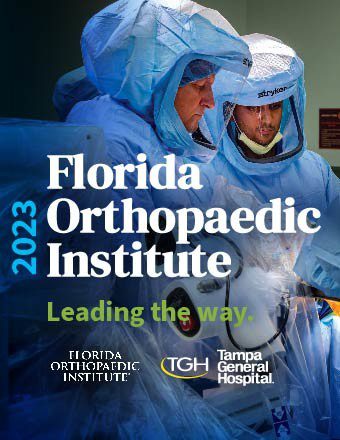
In 2023, Florida Orthopaedic Institute continued expanding by adding three new office locations and 13 world-class specialists. Read more about our growth, subspecialties, and research in our annual report.
Results-focused, patient-centered
Treating over 200k+ new patients annually, we take a methodical, diligent approach to consistently help patients return to active lifestyles.
We offer unmatched expertise in musculoskeletal care.
Our internationally renowned and board certified physicians are experts in trauma, sports medicine, foot and ankle, hand and upper extremity, hip and knee reconstruction, shoulder and elbow, interventional pain, and spine subspecialties.
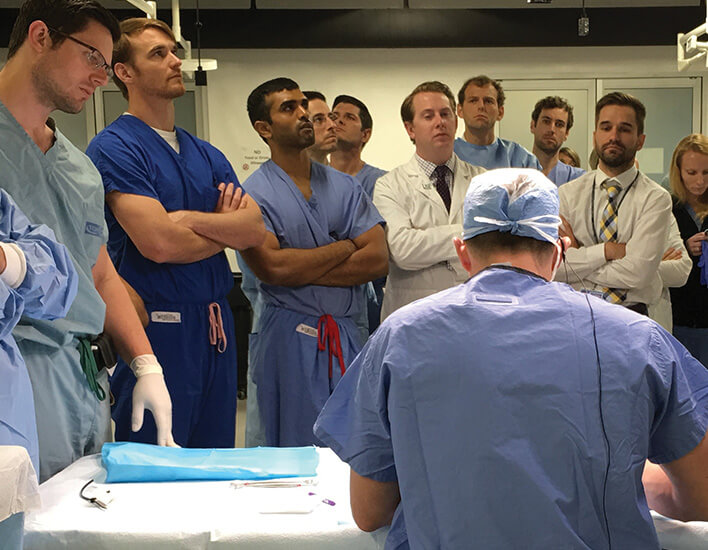
We provide accessible and personalized orthopedic care.
With a team of 120+ physicians, 27 conveniently located facilities and hospital affiliations, you can easily access our services across Central Florida. Our physicians prioritize building a strong relationship with you and developing a personalized treatment strategy that aligns with your goals.

We ground our innovative services in patient-centered data, analytics and research.
As leaders in orthopedic care, we are committed to developing and expanding each of our treatment options by applying breakthrough learnings from our methodical clinical research.

We advance the field of orthopedics through rigorous academics and ongoing education.
Our physicians and those in training adopt the latest advancements and techniques in orthopedics. Our commitment to advancing the field ensures that patients receive the highest quality of care possible.

At the leading edge of orthopedics
In partnership with Tampa General Hospital, we are making innovative orthopedic solutions accessible across Central Florida.


- One of America’s Best Regional Hospitals by U.S. News & World Report for 2023-2024
- Ranked “High Performing” for Knee and Hip Replacement by U.S. News & World Report for 2023-2024
- Gold Seal certification for orthopedic trauma from The Joint Commission
- Ranked among the top 2% of hospitals in the nation for orthopedics by U.S. News & World Report for 2023-2024
- Recognized by Becker’s Hospital Review 100 Hospitals and Health Systems with Great Orthopedic Programs
